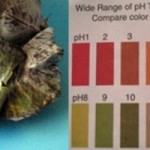
Earlier today we posted a link to a tournament NASA is holding. NASA is trying to crowdsource the organization of terabytes of data collected from missions all over the solar system. A few Hackaday readers wrote in (thanks [grbgout] and all the others) to tell us there is an International Space Apps Challenge going on this weekend to crowdsourse solutions to the problems of space flight.
The challenge is the product of a partnership between NASA, the National Science Foundation, the UK and Japanese Space Agencies and a host of other organizations like GitHub, Yahoo Developer Network, and even a few hackerspaces. The idea behind the challenge is simple: spend a weekend solving software, hardware, and science challenges to improve the state of space sciences.
There are a lot of interesting projects like programming an interface to a NASA mission simulator, figure out how to print 3D objects in space, and even develop the hardware and software for an underwater ROV.
Aside from the fancy software and hardware challenges, there are also some very interesting data visualization problems, like clearly explaining the fact that space is mostly empty. If you can figure out how to tell people they aren’t the center of the Universe, take a shot at it – there’s probably a Nobel in Literature in it for you.
Right now there are dozens of locations on all seven continents and in Low Earth Orbit (McMurdo Station in Antartica and the ISS) that will have people contributing to these projects. Of course you’re free to work out of the home and help scientists, engineers, and researchers reach to the stars.






Recent Comments